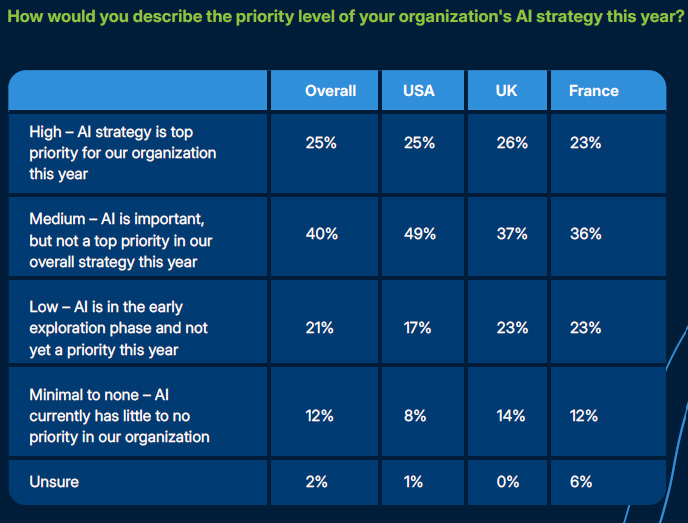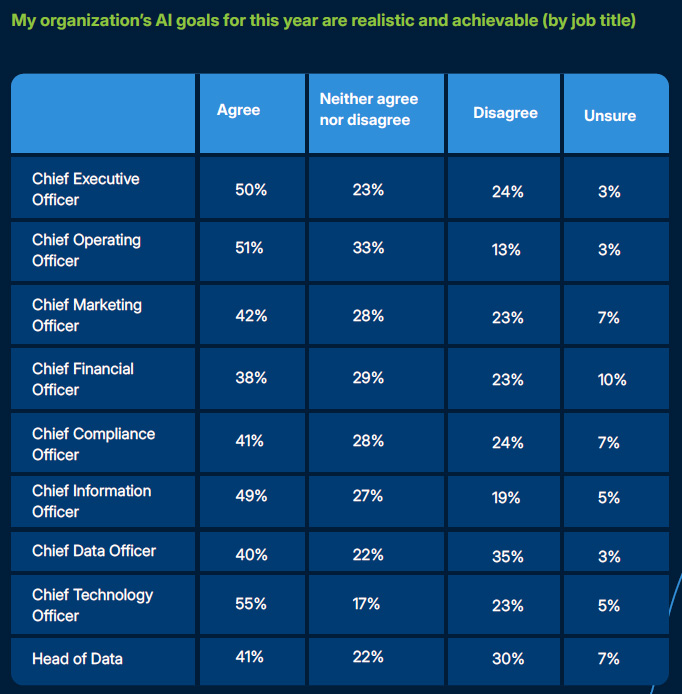Master Data Management provides the essential foundation for reliable, scalable AI initiatives across manufacturing operations.
By Craig Gravina, CTO at Semarchy
AI is poised to reshape business strategies across industries in 2025, with recent research showing that 75% of organisations intend to invest in AI technologies this year. Over half (52%) will allocate at least 10% of their technology budgets to AI-related initiatives.
However, this wave of AI ambition is heading towards a familiar roadblock: poor data quality. A staggering 98% of businesses report data-related challenges, creating a substantial bottleneck in their digital transformation journeys.
In the manufacturing industry, where operations rely on continuous flows of interconnected data – from procurement to supply chain operations – the consequences of poor-quality data are clear. From customer data to vendor details and product and equipment information, these organizations generate massive volumes of data daily. This makes it essential to have a robust master data management (MDM) system in place that efficiently consolidates and stores accurate and organised data in an accessible manner.
Manufacturing organizations operate within a uniquely fragmented data environment, with critical information living across ERP, MES, PLM, and SCM systems, often with little integration between them. As a result, this fragmentation creates persistent operational challenges: duplicate material and supplier records, inconsistent classification between facilities, and poor integration between legacy and modern systems.
These issues are more than just administrative headaches. They directly contribute to the widespread data quality problems reported by 98% of businesses, with duplicate records (25%), compliance issues (27%), and poor integration (21%) being the primary concerns.
When supplier data contains duplications or inaccuracies, AI-powered spend analytics produce misleading results, leading to subpar procurement decisions. Similarly, poorly integrated production data compromises demand forecasting algorithms, resulting in inventory imbalances or production delays. AI models’ reliability, accuracy, and explainability depend on data integrity — when the foundation is flawed, even the most sophisticated AI systems will generate unreliable outputs.
As manufacturing organizations increase their AI investments, addressing these fundamental data quality issues becomes an essential prerequisite for realizing the potential of these technologies.

Master Data Management (MDM) is more than a data-cleaning tool – it’s a strategic discipline for establishing a single, trusted source of business data. MDM takes on particular significance in manufacturing environments due to the complex relationships between various data domains.
Effective MDM in manufacturing focuses on maintaining clean, consistent, and reliable data across several critical categories:
Ensuring that product designs, component relationships, and engineering specifications remain accurate and synchronized across all systems.
Maintaining standardized definitions and properties for raw materials and components to support accurate inventory management and procurement.
Creating unified supplier profiles with consistent performance metrics, compliance information, and contractual terms.
Standardizing process definitions and quality benchmarks to enable meaningful cross-plant comparisons and improvements.
Providing consistent asset information to optimize maintenance scheduling and equipment operation.
These seemingly granular data elements are the connective tissue of modern manufacturing. When mismanaged – duplicated, incomplete, or siloed – the impact is exponential.
Properly implemented MDM delivers tangible advantages throughout manufacturing operations:
By establishing a foundation of trusted master data, manufacturers unlock a clear view of their operations, and position themselves to leverage advanced analytics and AI technologies effectively.
Manufacturing Master Data Management provides the essential foundation for reliable, scalable AI initiatives across operations. Clean product data enables more accurate predictive analytics for inventory and demand planning, while properly managed supplier and quality data powers precise AI-driven quality control systems.
Predictive maintenance models operate with significantly improved reliability when integrating sensor and equipment data through comprehensive MDM. Take, for example, a global automotive manufacturer implementing AI-powered predictive maintenance. Without standardized machine identifiers and properly integrated sensor data, their sophisticated AI models would experience drift and generate false predictions, potentially missing critical maintenance warning signs or triggering unnecessary interventions.
Beyond operational benefits, strong MDM delivers strategic advantages in today’s manufacturing landscape. Properly managed data improves regulatory compliance with ISO standards and enables more accurate sustainability tracking and reporting, all of which influence decision-making and customer trust.

Despite surging AI investments, less than half (46%) of organizations report confidence in meeting their AI objectives – a gap frequently attributed to unclear ownership and governance structures. While CTOs and CIOs typically lead the technical aspects of AI implementation, CEOs increasingly expect these initiatives to deliver tangible impacts on bottom-line metrics such as cost reduction and product quality improvement.
This points to a governance gap. And without clear ownership of data quality and strategy, many AI projects risk becoming siloed technical experiments with limited business impact.
Forward-thinking manufacturers are addressing this disconnect by aligning leadership around the value of trusted data – often placing Chief Data Officers or MDM leaders in cross-functional roles. Robust MDM systems support this governance model by centralizing governance, standardizing KPIs, and enforcing consistent data practices at scale.
AI success hinges on algorithms, data quality, and governance. With AI investments accelerating, manufacturers cannot afford the inefficiencies and missed opportunities that stem from disorganized data.
Master Data Management is not merely an IT project, but a business transformation enabler — the essential foundation supporting ERP, AI, analytics, and digital manufacturing. The need for integrated, trustworthy data will only intensify as the industry evolves toward innovations such as digital twins, autonomous planning, and smart factories.
The reality is straightforward: AI is only as good as its underlying data. In manufacturing, where precision directly impacts profitability, poor data quality creates financial burdens. Organizations that prioritize robust data foundations today will be in the best position to realize AI’s transformative potential tomorrow.

About the Author:
Craig Gravina is Chief Technology Officer at Semarchy, a leader in master data management, intelligence and integrated solutions for global enterprises. With deep expertise in AI, cloud, and data technologies, Craig is recognized in the sector as a developer of disruptive, market-leading solutions. In his previous role as CTO at ObvioHealth, he led digital transformation in clinical trials using AI, machine learning and cloud technologies. Specializing in distributed architectures, SaaS/PaaS business models, and AI/ML innovations, Craig is passionate about bridging business, product, and technology to deliver scalable, high-impact solutions that empower organizations to unlock the full potential of their data.
Scott Ellyson, CEO of East West Manufacturing, brings decades of global manufacturing and supply chain leadership to the conversation. In this episode, he shares practical insights on scaling operations, navigating complexity, and building resilient manufacturing networks in an increasingly connected world.